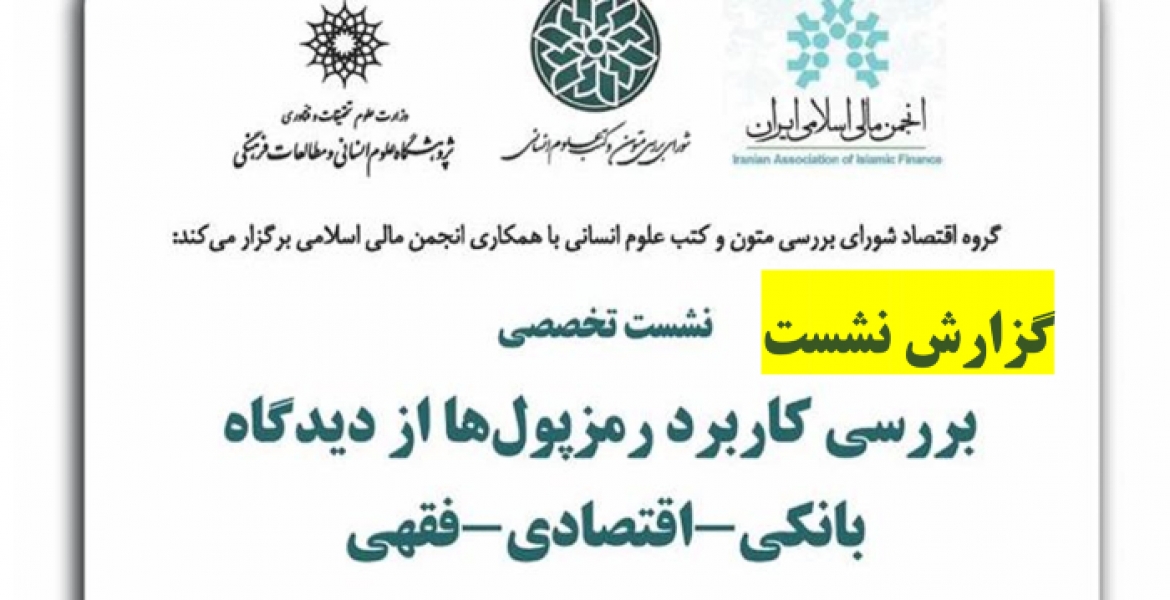
IAIF held a specialized session on the Study of the use of cryptocurrencies from economic-banking-sharia perspective on 7 Sep. 2021.
The specialized meeting over the Study of the use of cryptocurrencies from economic-banking-sharia perspective was held on 2 Sep. 2021.
At the beginning of the meeting, Dr. Mehdi Nouri, a university lecturer and an expert in the field of cryptocurrencies and Blockchain, said there are different types of cryptocurrencies, so in terms of policy-making and even jurisprudential study it is necessary to pay attention to these distinctions and all cryptocurrencies must not be considered the same. He said in economics whatever has three features: 1- Medium of exchange. 2- Unit of account. 3- Store of value is known as money.
High volatility in cryptocurrencies has caused the store of value function not to perform well in short term. Taking into account the high volatility, the first and second tasks are not currently well formed. In addition, they are not yet widely used in micropayments due to their scalability and low TPS.
Speaking about the economic effects, he stated the advantages and various risks of cryptocurrencies on the economy as follows:
1) Freedom in payment and international access,
2) Low transaction cost,
3) High speed in international and cross-border transfers,
4) No money creation and anti-inflationary properties,
5) Use of virtual currency while Iran is under sanctions,
6) The inability of governments to confiscate and block,
7) The possibility of tracing and transparency,
8) The comparative advantage of Bitcoin mining,
9) The issuance of tokens and the initial coin offering (ICO),
10) The reduction of the influence of US dollar in Iran's economic sanctions,
11) The possibility of creating regional cryptocurrencies and facilitating bilateral and multilateral monetary agreements,
12) The possibility of increasing new businesses and increasing employment,
13) Facilitating the globalization of domestic businesses and improving non-oil exports,
14) Impossibility of forging cryptocurrencies,
15) Possibility of increasing foreign investment.
Dr. Nouri mentioned the risks in cryptocurrencies include:
1) Price fluctuations and instability,
2) Threat to the real economy,
3) Weakening of the central bank and intermediaries,
4) The possibility of tax evasion, money laundering and the expansion of the informal sector of the economy,
5) Public unfamiliarity with virtual currencies,
6) High confirmation time for transaction of domestic exchanges,
7) Currency outflow,
8) High energy consumption.
Then Dr. Hossein Meysami, a Faculty member of the Monetary and Banking Research Institute of the Central Bank, talked about the thematics of identity, mining and exchange of types of cryptocurrencies and tokens, going on to say that the study of cryptocurrencies is an emerging phenomenon that requires thematics and jurisprudence. He mentioned the necessity of thematics for the jurisprudential-legal discussion regarding cryptocurrencies is for the following reasons:
1- The phenomenon of cryptocurrencies is a new category whose various economic, technical, financial, etc. dimensions require careful discussion and thematics.
2. The jurisprudential-legal discussion of cryptocurrencies is one of the prerequisites for their success in practice.
3. The applications of cryptocurrencies in practice in the field of exchanges, wallets, smart contracts, etc. require their jurisprudential-legal acceptance.
Dr. Meysami then defined the cryptocurrencies and tokens, explaining the difference between them, saying that a token is a digital entity that represents a virtual or real value while a cryptocurrency is a type of financial asset that exists on a digital, decentralized and transparent platform. These assets can be monetized in certain circumstances.
He went on to describe the types of cryptocurrencies and tokens in the following order:
1. Peer to peer or decentralized
2. Issuer (central bank or not)
3. Digital or non-digital
4.Extensive or limited access
After that Dr. Gholamreza Mesbahi Moghadam, a Professor of economics in Imam Sadiq University, spoke about the jurisprudential study of the usage of Bitcoin, mentioning the prerequisite for issuing Fatwa (legal opinion on a point of Islamic law) is thematics. He said the origin of the cryptocurrencies is also ambiguous. The subject of the exchange must be transparent in various dimensions. What country produced it, what is their fate? Who will be responsible if Bitcoin becomes unavailable one day?
Then he stated instability and high volitality in cryptocurrencies cause Gharar (a high risk leading to a big loss). If we assume that a cryptocurrency is a kind of money, then one of the functions of money is the value scale, and it can only perform this function if it is stable. Bitcoin miners are getting more complex and expensive day by day, so these things make its producers less and less, and eventually the production of this cryptocurrency becomes monopoly, and only a limited number of people will benefit from it.


